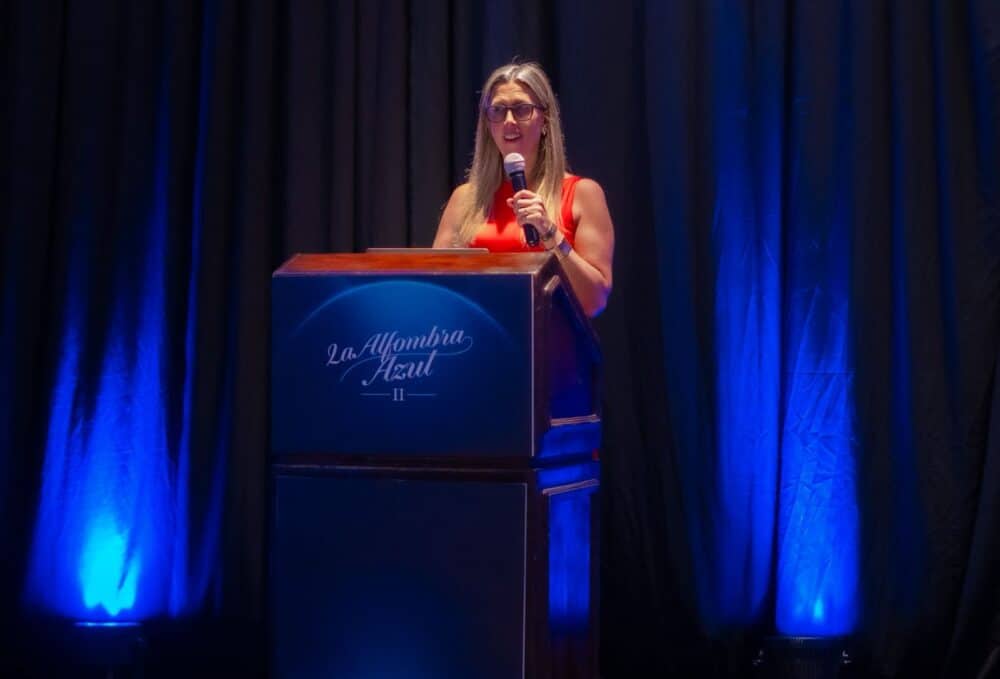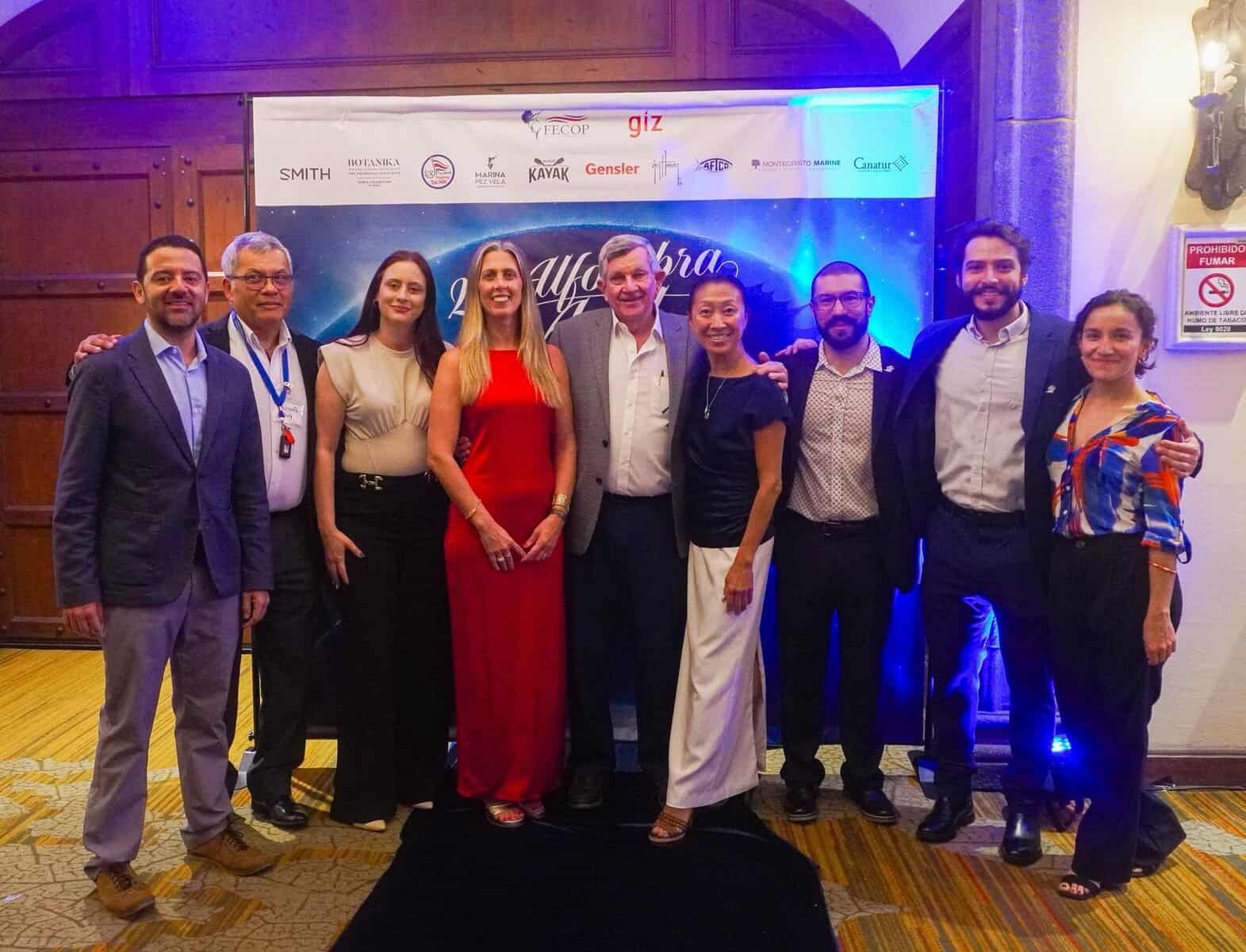On Friday, the Costa Rican Fishing Federation (FECOP) held the second edition of La Alfombra Azul, an event created to celebrate innovation, science, and sustainability related to the ocean and recreational and sport fishing.
The event took place at the Costa Rica Marriott Hacienda Belén Hotel and brought together nearly 300 national and international leaders involved in marine management and responsible fishing, including representatives from the public, private, academic, and civil society sectors.
“This is an event to celebrate the tourism and sport fishing sector. It is a great opportunity to come together as a sector, connect, and learn about the different projects and initiatives that various groups in coastal communities are developing throughout the country. We are very happy to have helped create this space for unity and conversation within the fishing sector,” said FECOP Executive Director Marina Marrari.
Throughout the day, attendees shared experiences, research, and proposals that reinforced Costa Rica’s role as a regional leader in sustainability and responsible management of marine resources.
In the afternoon, three parallel activities were held to generate knowledge and proposals from different perspectives, with the participation of experts, academics, and representatives of coastal communities.
Among these, the meeting “Climate Change and the Ocean: Tools for Impact Management” stood out, as did the symposium “Tourism and Sport Fishing in Costa Rica: Biological and Social Perspectives,” both focused on providing scientific information and practical tools for the sustainable management of marine ecosystems.
In addition, a national workshop titled “Developing Proposals for the Recreational and Sport Fishing Sector” was held, marking the culmination of a process lasting nearly two years, during which local stakeholders from different coastal regions of the country contributed their knowledge and experience to develop joint proposals aimed at strengthening the sustainability and competitiveness of the sector.

During the ceremony, tribute was paid to the efforts and commitment of the tourism and sport fishermen of Parismina, who were instrumental in the discovery of the orange shark, a key event which highlights the value of citizen science and responsible observation in marine conservation.
The program also focused on stories of local leadership, such as that of Randy Enrique of Cynoscion, a sport fisherman from Puntarenas, who shared his experience on responsibility and ethics in tourism fishing, reaffirming the importance of maintaining sustainable standards at all stages of the activity.
Texas Tech University presented the results of its study on customer satisfaction in tourism and sport fishing, while the international firm Gensler showcased an innovative sustainable design project using virtual reality, aimed at promoting marine–coastal education and environmental awareness.
The evening concluded with an inspiring presentation by Jessica Harvey of the Guy Harvey Foundation, titled “The Art of Conservation,” which underscored the power of art and science as essential allies for ocean conservation.
As part of the celebration, awards were presented for Marine Conservation Video of the Year and Influencer of the Year, recognizing those who, through their platforms and communities, promote the protection of marine ecosystems and responsible fishing practices.
“With this second edition, La Alfombra Azul has established itself as a platform for connection and inspiration that promotes science, education, and innovation as pillars for a sustainable future for the oceans and the communities that depend on them,” said Marrari.
The event was supported by GIZ (German Cooperation), AFTCO, Smith Optics, Gensler, Montecristo Marine, Marina Pez Vela, Pescando con Heber, Guy Harvey, Botanika Resort, CANATUR, and Mundo Kayak. Their support reaffirms the potential of public–private partnerships to strengthen innovation, education, and the sustainable management of marine resources in Costa Rica.
FECOP works to create sustainable coastal communities by promoting responsible fishing practices and the conservation of marine resources through public–private partnerships.






